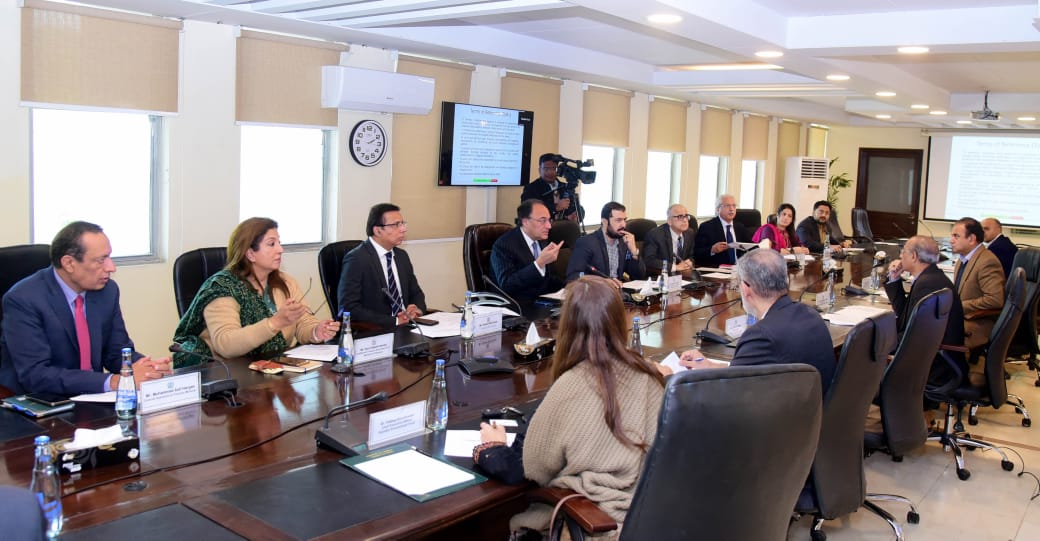Islamabad, Dec 9: Federal Minister for Finance and Revenue, Senator Muhammad Aurangzeb, chaired a meeting of the Prime Minister’s Committee on Social Impact Financing at the Finance Division on Monday. The session focused on advancing innovative financial solutions to drive social impact, enhance financial inclusion, and uplift marginalized communities in Pakistan.
The Finance Minister highlighted the government’s role in establishing a robust policy and regulatory framework for social impact financing, emphasizing that the private sector would lead implementation efforts. “The private sector has already been doing an outstanding job in this domain, and we must focus on creating an enabling environment rather than establishing yet another government institution. This aligns with the government’s rightsizing objectives,” he said.
He further stressed the importance of moving beyond charity to broader impact financing. “Transparency from philanthropy to the end beneficiaries is essential. Digital solutions must be integrated to ensure efficient systems, while accountability and impact evaluation will build trust and credibility among stakeholders,” he added.
The discussions centered on key priorities:
- Developing a policy and regulatory framework to connect philanthropic contributions, including Sadaqaat and Zakat, with the underserved segments of society.
- Mobilizing philanthropic capital to achieve tangible and sustainable social outcomes.
- Addressing legal, financial, and regulatory challenges to create an enabling environment for impact financing.
- Enhancing financial inclusion while adhering to religious principles.
- Identifying and mitigating risks to safeguard social impact investments.
- Promoting digitalization and impact evaluation to strengthen accountability mechanisms.
The participants shared insights on blended financing models, public-private partnerships, and fostering microfinance initiatives. Proposals were made to ensure a comprehensive regulatory framework that encourages private sector innovation and safeguards investments.
The Finance Minister appreciated the commitment and contributions of all stakeholders and directed accelerated efforts to finalize the proposed policy framework. He reiterated the government’s resolve to support initiatives that foster inclusive growth, sustainable development, and community welfare while empowering the private sector to take the lead in driving meaningful social impact.
The meeting brought together a diverse group of stakeholders from the public and private sectors, both in person and virtually, including Minister of State for Finance and Revenue Ali Parvez Malik, Governor State Bank of Pakistan, Chairman SECP, President Pakistan Banks’ Association, MD Pakistan Bait-ul-Mal, MD State Life Insurance Corporation, Kamran Shams (CEO, Akhuwat Foundation).
Dr. Waqas Ul Hassan (CEO, Karandaaz Pakistan), Dr. Fatima Khushnood (CEO, Pakistan Environment Trust), Hamed Yaqoob Sheikh (Team Leader, FCDO REMIT Program), Shahid Aziz (CEO, Interloop Asset Management), Rashid Bajwa (CEO, National Rural Support Programme), and Secretaries of Social Sector and Poverty Alleviation Division, Law and Justice Division, Finance Division, along with senior officers from relevant ministries and departments.









